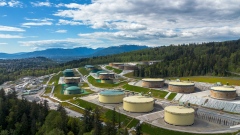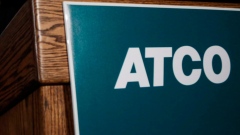Nov 1, 2023
Housing concerns prompt halt in Canada immigration target boost
, Bloomberg News
Canada has found a partial patch to the demographic crisis in immigration: Peter Zeihan
Prime Minister Justin Trudeau’s government is slowing down the increases in its key immigration targets amid growing concerns that record population gains are exacerbating housing shortages.
Canada aims to welcome 485,000 permanent residents next year and 500,000 in 2025, the same levels announced in last year’s plan, Immigration Minister Marc Miller announced Wednesday.
Starting in 2026, the government will stabilize the levels at a record half a million. That’s the first time in a decade that the government won’t raise its annual targets.
The climbdown from continued increases in immigration levels suggests the government is trying to placate criticisms that explosive population growth has overwhelmed housing and infrastructure. Yet keeping a record target of 500,000 shows it’s also sticking with its broader plan to rapidly add more workers to stave off economic decline from an aging populace.
“By stabilizing the number of newcomers, we recognize that housing, infrastructure planning, and sustainable population growth need to be properly taken into account,” Miller said in Ottawa. “We are striking the appropriate balance to grow Canada’s economy, while maintaining our humanitarian traditions, supporting Francophone immigration, and developing a more collaborative approach to levels planning with our partners.”
While permanent residents aren’t the only newcomers the country is receiving in record numbers, they’re the backbone of Canada’s immigration system. These arrivals, along with international students and temporary workers, helped bring the country’s population growth over a one-year period to July to a record 2.9 per cent, among the world’s fastest rates.
Since Trudeau came into power in 2015, his government was able to count on wide public support to constantly raise immigration targets. Thanks to the country’s relatively isolated geography sharing land borders with only the U.S., Canada can better control the inflow compared with many of its peer countries, where large influxes of undocumented migrants have become a political issue.
For two decades, a majority of Canadians rejected the premise that the country accepted too many newcomers, and Canada stood out globally for its attitude and approach to immigration. But soaring housing prices have pushed support for immigration levels to their lowest point in two decades. That’s a fresh challenge for a government already facing an outcry over an affordability crisis.






